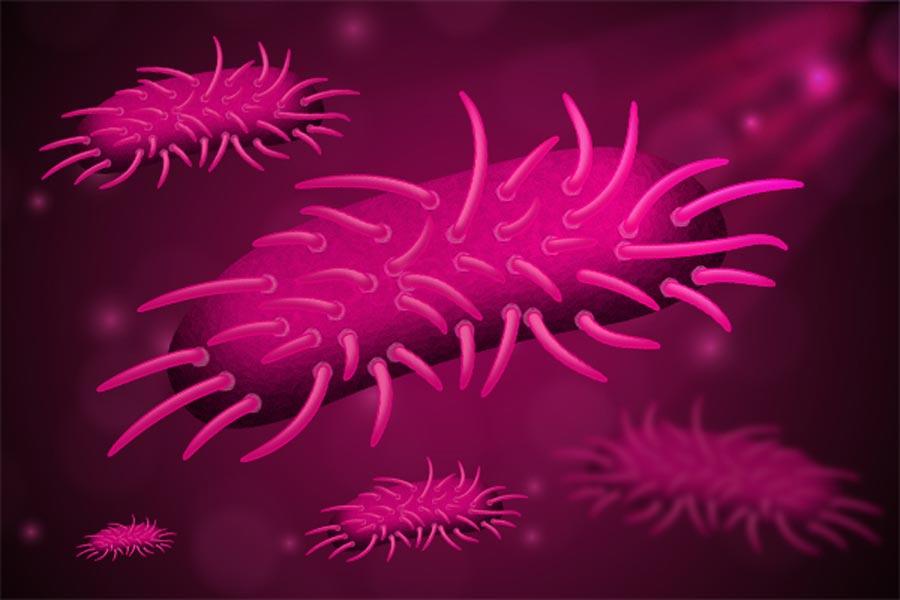STIs
What is Shigella?

Shigella is a bacterial gut infection that can cause severe stomach upset and diarrhoea. Anyone can get Shigella, but certain sexual activities that involve contact with faeces (poo) increase the chances of getting infected.
The European Centre of Disease Control (ECDC) recently reported on extensively drug-resistant Shigella Sonnei across Europe and Ireland amongst gbMSM.
How does someone get Shigella?
It is passed on through infected faeces (poo) getting into your mouth – this can be through contaminated food or sexually. Only a very small amount of the bacteria is needed to cause infection. Infection can be treated with a course of antibiotics, however some strains can prove more difficult to treat.
Sex that may involve contact with faeces (poo) is a risk e.g. anal sex, fisting, fingering, rimming, oral sex or handling a condom or sex toy used for anal sex. Bad hygiene like not washing hands can contribute to the spread of shigella.
In Ireland, Shigella is a notifiable infection. This means that all cases diagnosed are notified to Public Health so that all steps necessary are taken to protect the health and wellbeing of those affected or at risk. The bacteria from cases of Shigella infection are sent to a national reference laboratory and are fully DNA sequenced to identify evidence of spread and to track antibiotic resistance.
The number of cases of sexually acquired Shigella has increased in MSM in the recent past in Europe, including Ireland.
What are the symptoms?
Shigella is a gut infection which causes severe, prolonged diarrhoea and stomach cramps.
Symptoms often develop around one to three days after (sexual) contact, and can include:
- frequent and explosive diarrhoea lasting more than 48 hours
- stomach cramps
- feeling feverish with flu like symptoms
- some people report vomiting
- some people may have blood mixed with the diarrhoea
What does a Shigella test involve?
If you suspect you have Shigella, you should contact your healthcare provider who can organise a test. Shigella is usually diagnosed by sending a stool (poo) sample to the laboratory for testing. If you picked up Shigella sexually, testing for other STIs is recommended.
You can find your nearest STI clinic here.
What does treatment involve?
Diarrhoea caused by Shigella usually goes away between five to seven days. People with mild infection will generally get better with fluids and rest. Antibiotics are usually used to help reduce the spread of Shigella to someone else and for more severe cases.
If you have diarrhoea, stomach cramps or fever, avoid sex with another person, till you get the all clear.
Do not share towels; do not use health spas, jacuzzis, hot tubs or swimming pools.
If you work in the food industry, healthcare or childcare settings, stay out of work while you have symptoms. Public Health personnel will be in touch with you and you will be advised when you can return to work.
Reduce the Risk
You can lower your risk of getting Shigella during sex by adopting the following hygiene measures:
- Washing of hands, genital and anal areas before and after sex
- Using latex gloves for fingering or fisting and dental dams during oral-anal sex
- Not sharing sex toys and ensuring proper cleaning and disinfection after their use and between partners
- Changing condoms between anal and oral sex
Protecting Yourself at Festivals and Circuit Parties
Travelling to large international GBT parties can be a lot of fun. However, due to the increased risk of sexually transmitted infections (STIs), it is important to take steps to protect yourself and your partners.
Before your trip, it is worth researching sexual health services at your destination and pack condoms, lubricants, and any necessary medications.
Once you arrive, practice safe sex habits by maintaining good hand hygiene, clean sex toys before sharing, and changing condoms between different sexual activities and partners. If you experience any symptoms of an STI, such as diarrhoea, cramps, or fever, seek immediate medical attention.
It is also worth availing of the European Health Insurance Card (EHIC). The card entitles you to free or reduced-cost healthcare when travelling in Europe. You can apply for an EHIC if you’re living in Ireland and intend to live here for at least 1 year. Find out how to get your EHIC. If you are travelling outside Europe, it is recommended to get travel/health insurance.



